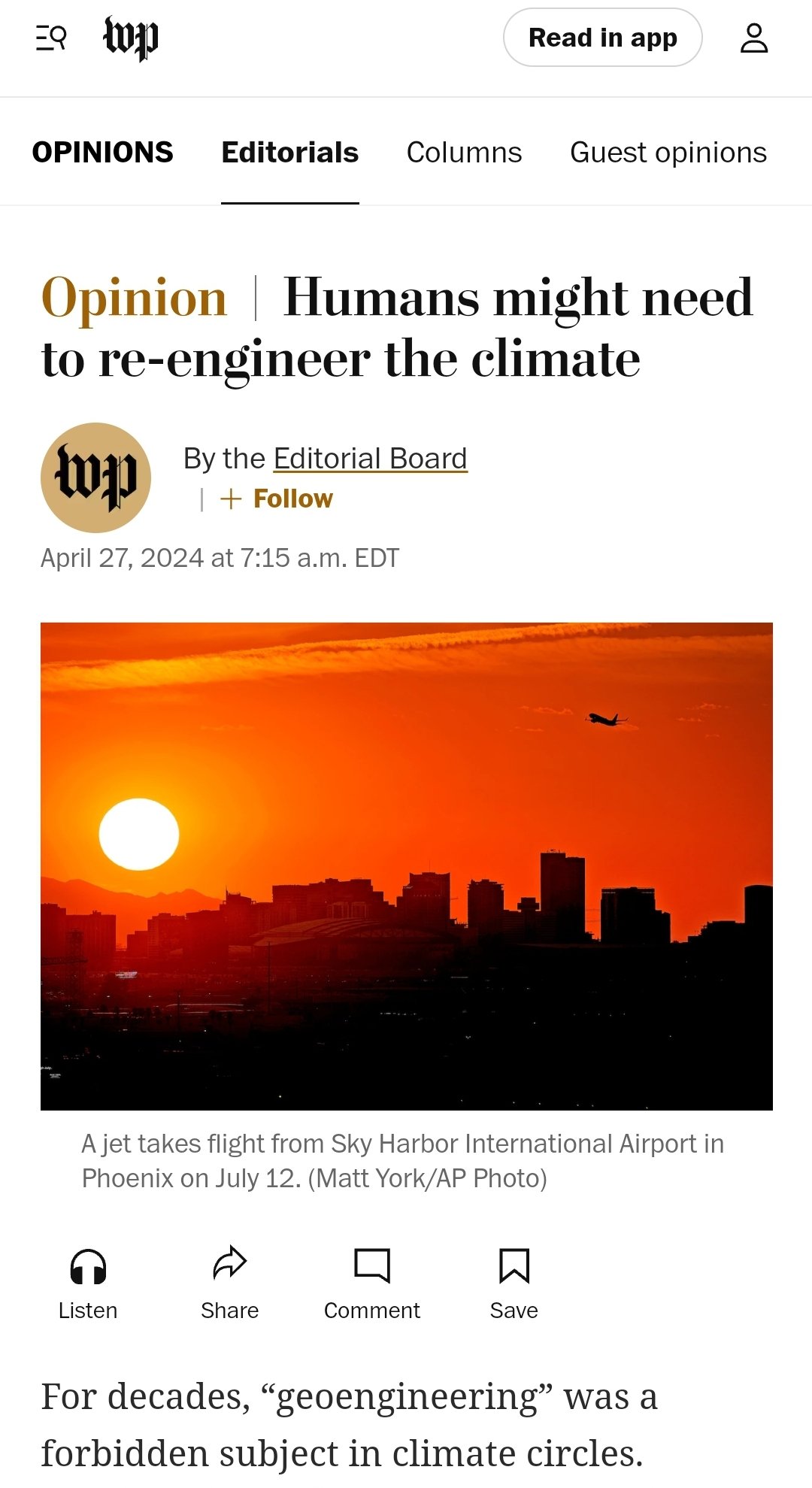https://www.wsj.com/articles/climate-alarmists-may-inherit-the-wind-1522605526
Climate Alarmists May Inherit the Wind
They likened a courtroom ‘tutorial’ to the Scopes Monkey Trial. But their side got schooled.
By Phelim McAleer
San Francisco
Five American oil companies find themselves in a San Francisco courtroom. California v. Chevron is a civil action brought by the city attorneys of San Francisco and Oakland, who accuse the defendants of creating a “public nuisance” by contributing to climate change and of conspiring to cover it up so they could continue to profit.No trial date has been set, but on March 21 the litigants gathered for a “climate change tutorial” ordered by Judge William Alsup—a prospect that thrilled climate-change alarmists. Excited spectators gathered outside the courtroom at 6 a.m., urged on by advocates such as the website Grist, which declared “Buckle up, polluters! You’re in for it now,” and likened the proceeding to the 1925 Scopes Monkey Trial.
In the event, the hearing did not go well for the plainti s—and not for lack of legal talent. Steve W. Berman, who represented the cities, is a star trial lawyer who has made a career and a fortune suing corporations for large settlements, including the $200 billion-plus tobacco settlement in 1998.
“Until now, fossil fuel companies have been able to talk about climate science in political and media arenas where there is far less accountability to the truth,” Michael Burger of the Sabin Center for Climate Change Law at Columbia University told Grist. The hearing
did mark a shi toward accountability—but perhaps not in the way activists would have liked.
Judge Alsup started quietly. He flattered the plainti s’ first witness, Oxford physicist Myles Allen, by calling him a “genius,” but he also reprimanded Mr. Allen for using a misleading illustration to represent carbon dioxide in the atmosphere and a graph ostensibly about temperature rise that did not actually show rising temperatures.
Then the pointed questions began. Gary Griggs, an oceanographer at the University of California, Santa Cruz, struggled with the judge’s simple query: “What do you think caused the last Ice Age?”
The professor talked at length about a wobble in the earth’s orbit and went on to describe a period “before there were humans on the planet,” which “we call hothouse Earth.” That was when “all the ice melted. We had fossils of palm trees and alligators in the Arctic,” Mr. Griggs told the court. He added that at one time the sea level was 20 to 30 feet higher than today.
Mr. Griggs then recounted “a period called ‘snow ballers,’ ” when scientists “think the entire Earth was frozen due to changes in things like methane released from the ocean.”
Bear in mind these accounts of two apocalyptic climate events that occurred naturally came from a witness for plainti s looking to prove American oil companies are responsible for small changes in present-day climate.
The defendants’ lawyer, Theodore J. Boutrous Jr., emphasized the little-discussed but huge uncertainties in reports from the United Nations Intergovernmental Panel on Climate Change and the failure of worst-case climate models to pan out in reality. Or as Judge Alsup put it: “Instead of doom and gloom, it’s just gloom.”
Mr. Boutrous also noted that the city of San Francisco—in court claiming that rising sea levels imperil its future—recently issued a 20-year bond, whose prospectus asserted the city was “unable to predict whether sea level rise or other impacts of climate change or
flooding from a major storm will occur.”
Judge Alsup was particularly scathing about the conspiracy claim. The plainti s alleged that the oil companies were in possession of “smoking gun” documents that would prove their liability; Mr. Boutrous said this was simply an internal summary of the publicly available 1995 IPCC report.
The judge said he read the lawsuit’s allegations to mean “that there was a conspiratorial document within the defendants about how they knew good and well that global warming was right around the corner. And I said: ‘OK, that’s going to be a big thing. I want to see it.’ Well, it turned out it wasn’t quite that. What it was, was a slide show that somebody had gone to the IPCC and was reporting on what the IPCC had reported, and that was it. Nothing more. So they were on notice of what in IPCC said from that document, but it’s hard to say that they were secretly aware. By that point they knew. Everybody knew everything in the IPCC,” he stated.
Judge Alsup then turned to Mr. Berman: “If you want to respond, I’ll let you respond. . . . Anything you want to say?”“No,” said the counsel to the plainti s. Whereupon Judge Alsup adjourned the proceedings.
Until now, environmentalists and friendly academics have found a receptive audience in journalists and politicians who don’t understand science and are happy to defer to experts. Perhaps this is why the plainti s seemed so ill-prepared for their first court outings with tough questions from an informed and inquisitive judge.
Activists have long claimed they want their day in court so that the truth can be revealed. Given last week’s poor performance, they may be the ones who inherit the wind.
Mr. McAleer is a journalist, playwright and filmmaker. He is currently writing a play about Chevron Corp.’s legal fight over alleged pollution in Ecuador.




